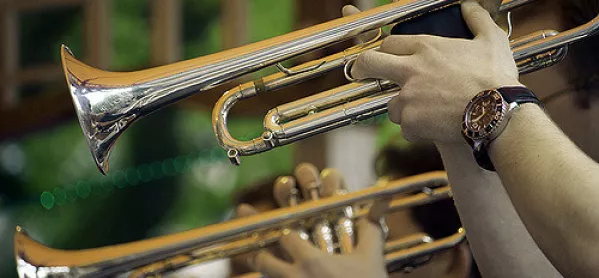The “sad decline in the support for music in schools” has been laid bare by a new report, which suggests that there is a “real risk” that children will miss out on “the wonderful world of making music”.
The research by the Musicians’ Union questioned more than 1,000 people, including instrumental teachers and classroom teachers, and provides evidence that there are “serious continuing issues” around the provision of music education for all children across England.
It reports that primary and secondary teachers have seen music squeezed in their schools despite music being a national curriculum core subject.
“The majority of teachers reported that it receives less time within the curriculum, is taught by a range of non-specialist teachers, and [is] suffering from a ‘league table’ approach to subjects in the secondary curriculum as a result of decisions made by senior leadership teams in response to the government’s accountability measures,” the study warns.
‘Let every child learn music’
The MU is now calling on government to “let every child learn music and to accept that the cumulative effect of education policies over the past nine years has been detrimental to how music education is delivered.”
Diane Widdison, MU national organiser for education, said: “Music must be an integral part of every child’s educational life. Access to a broad and balanced curriculum, including the arts, should be experienced by all children regardless of their background.
“The success of any music education plan or policy is dependent on a skilled and supported workforce who are engaged to teach on proper terms and conditions with all the necessary checks and balances in place.”
The MU says it is keen to work with the Department of Education (DfE) and Arts Council England (ACE) to ensure that the issues raised and recommendations made are incorporated into the next National Plan for Music Education (NPME).
Paul McManus, chief executive of the Music Industries Association, said: “This excellent research reveals the sad decline in the support for music in schools. There is a real risk of children missing out on wonderful world of making music.
“We stand firm with the Musicians’ Union and all our music partners in the continued need to champion the rights of children to have a properly funded music education.”
A Department for Education spokesperson said: “We want all pupils to have the opportunity to study music at school - that’s why it is compulsory in the National Curriculum from the age of five up to 14. Analysis from last year shows that through our Music Hubs programme, more than 700,000 children learnt to play instruments in class together in 2016/17.
“We are putting more money into arts education programmes than any subject other than PE - nearly half a billion pounds to fund a range of music and cultural programmes between 2016 and 2020. This money is in addition to the funding that schools receive to deliver their curriculum.”
“We are currently working with music groups and practitioners to refresh the national plan for music education and develop a high-quality model music curriculum.”





